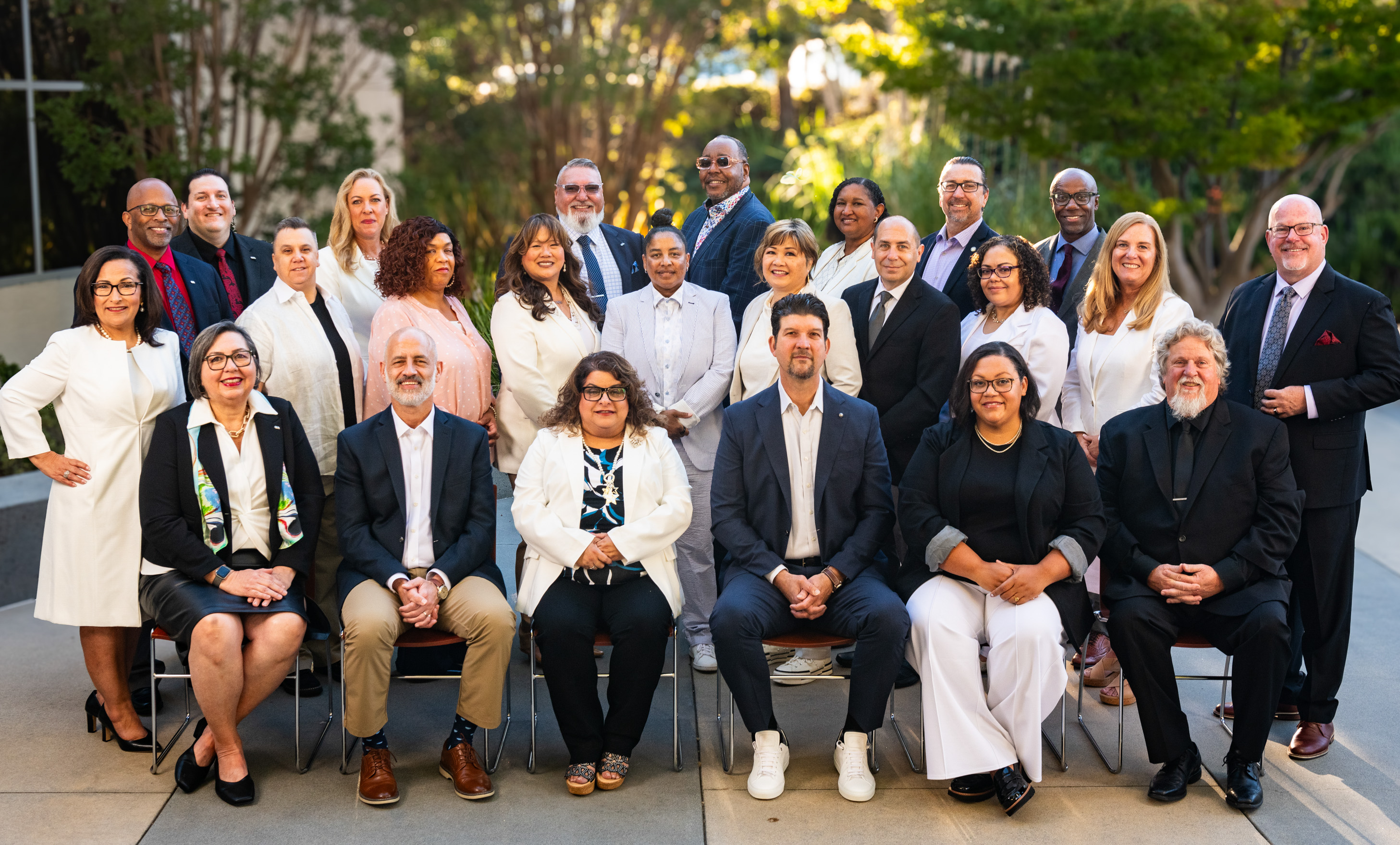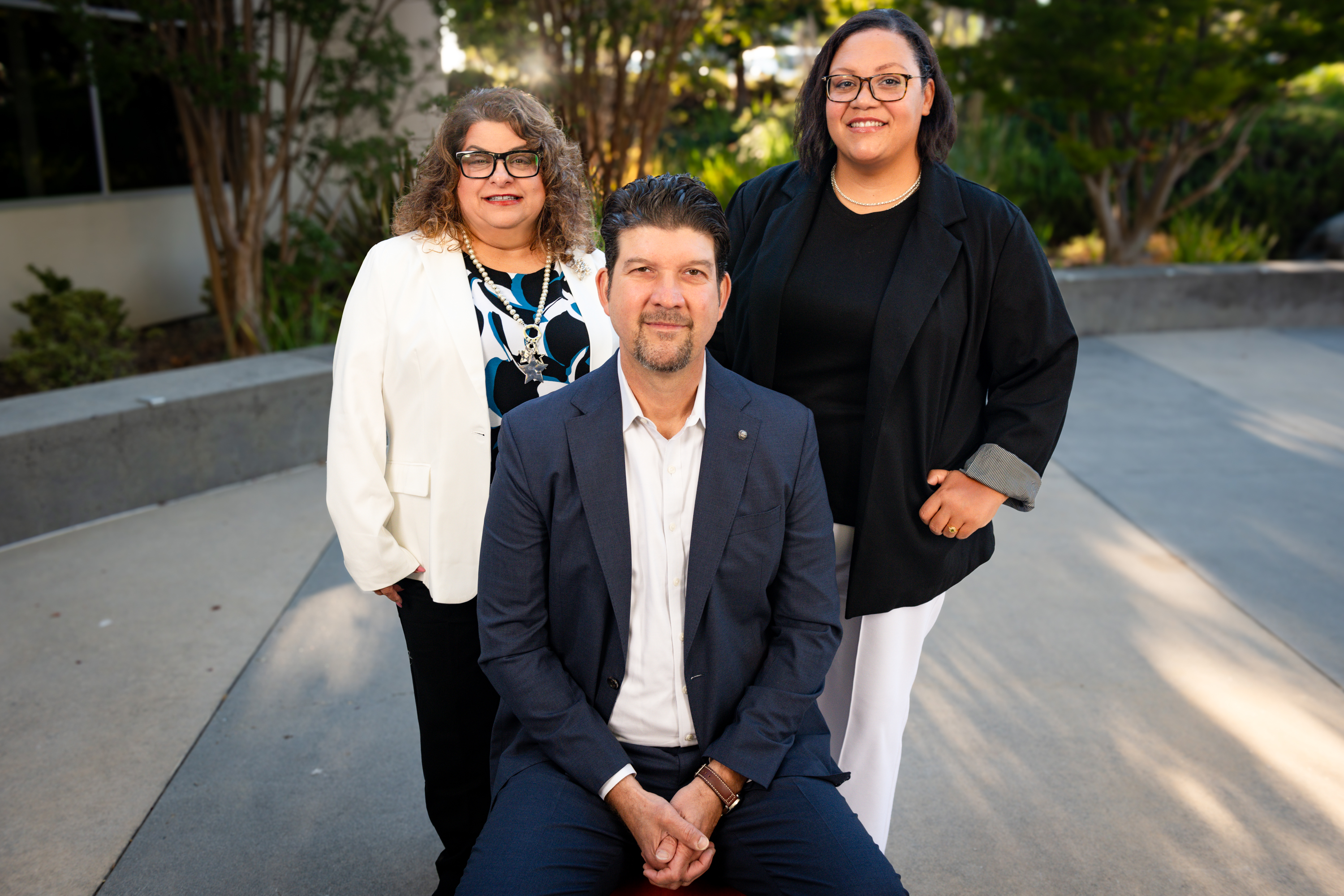Advocating on Behalf of California Educators
Through our Executive Officers, Board of Directors, State Council delegates, Committees, Liaisons and the NEA Representative Assembly, CTA leaders are elected to advocate on behalf of the 310,000 educators of California.
Executive Officers
CTA’s President, Vice-President and Secretary-Treasurer represent the three executive officers of the organization. Elected by CTA’s 800-member State Council of Education, the officers and Executive Director report to CTA’s Board of Directors.
President David B. Goldberg presides at all meetings of the Board and serves as the official representative of the association. Vice President Leslie Littman performs all duties assigned to her by the president, and, in the absence of the president, performs the president’s duties. Secretary-Treasurer Erika Jones performs the duties of both secretary and treasurer to the organization, maintaining the minutes of the governance bodies and overseeing the preparation of the budget. Executive Director Jeff Good oversees the supervision of CTA’s 435+ staff throughout the state.
Our Board of Directors

CTA’s Board of Directors oversees the implementation of all CTA policies from the State Council of Education. Board members serve on numerous committees and task forces within CTA and with state and local agencies. At the direction of the President, they represent members in the news media, before civic and community groups and with governmental agencies.
The CTA Board of Directors is composed of 23 teachers, 16 of whom are elected from geographically drawn districts with 10,000 or more members. In addition, two At-Large Directors represent ethnic minorities statewide; one Director represents higher education members; and one Board seat is reserved for a California member of the Board of Directors of the National Education Association. The three Executive Officers bring the total to 23.
Our State Council of Education
CTA’s top policy-making body is the State Council of Education. Meeting four times a year, the council’s nearly 800 delegates elect the three state-level CTA officers and the CTA Board of Directors. Council also sets forth CTA policy, develops legislation, and makes recommendations in general elections.
Our Committees
CTA has a variety of committees comprised of member leaders to represent social justice, budget, activities, disaster relief, ESP issues, conference planning, member benefits, scholarships and more.
Our Liaisons
The members of the CTA Liaison Committee promote the policies of CTA on behalf of all CTA members and students of California. Liaisons monitor and report on meetings of state agencies and organizations in matters affecting education. Under the auspices of the CTA Officers and appointed by the Board of Directors, the CTA Liaisons carry the message of CTA concerning public education to more than 60 state agencies and other organizations.
Our Caucuses
Caucus members advise, educate and lobby CTA State Council of Education and the CTA Board of Directors on issues of concern to the varying caucuses. Membership in CTA Caucuses is open to all CTA members.
The NEA Representative Assembly
The NEA Representative Assembly is the largest democratic deliberative assembly in the world. California sends more than 1,000 delegates to the NEA RA each summer. During this annual meeting, CTA members help set policy and chart the direction of NEA business through participation on various committees, constituencies, caucuses, and leadership groups.
Leader Resources
CTA strives to ensure member rights as educational professionals by helping local associations negotiate good contracts with better salaries and health benefits, stronger job-security provisions, and improved teaching and learning conditions. Our newly organized Leader Resources helps our leaders get the resources they need to lead the members of their local associations.
Helpful Leadership Links
In addition to our committees and liaisons, CTA offers a variety of leadership initiatives, programs, and scholarships.
The Ethnic Minority Early Identification & Development Program (EMEID)
The Ethnic Minority Early Identification & Development Program is a program designed to promote and develop ethnic minority leadership by opening doors to existing CTA/NEA programs and events.
Scholarships & Awards
CTA offers a number of awards to recognize teachers and members of the community who promote public education. From effective communications by and for local chapters, excellence in public education media coverage, social justice and community engagement efforts, leadership and more.
NEA California Directors
Along with the NEA Executive Committee, the NEA Board of Directors is responsible for the general policies and interests of the National Education Association. The NEA Board consists of at least one director from each state association.


